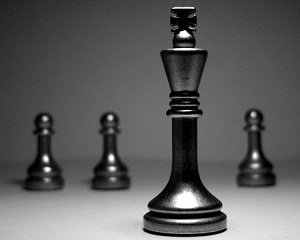Donaldson Tan

Returning Officer Yam Ah Mee declares the 4 Tans as candidates for the 2011 Presidential Election
As the 2011 Presidential Election unfolds, the internet is abuzz with various notions on what makes a good candidate. One such criteria is the candidate’s independence. Former Secretary-General of the National Solidarity Party Goh Meng Seng equated independence to political neutrality in his blog post. He writes:
Rethinking independence
The independent streak of President Ong Teng Cheong, however, wasn’t unexpected. President Ong was a former Deputy Prime Minister. He was fondly remembered for approving a port workers’ strike when he was the Secretary-General of the National Trade Union Congress. When queried by the Cabinet on why he approved the strike without consulting them, he said that he knew they would disapprove of it. This is an act of a first-rate decision maker.
Management guru Peter Drucker remarked in Managing the Non-profit Organisation: Principles & Practices (1990, Harper Collins) that first-rate decision makers have a very simple rule: if you have a consensus on an important matter, don’t make the decision. Adjourn it so that everybody has a little time to think. Important decisions are risky. They should be controversial. In another words, an appropriate measure of a candidate’s independent streak is his track record in pursuing and making decisions on controversial issues.
However, it is impossible to compare first-rate decision making abilities in political affairs across all candidates. Both Dr Tony Tan and Dr Tan Cheng Bock had held leadership positions in a political party whereby they had to make difficult decision on controversial issues such as the Marxist Conspiracy. On the other hand, both Tan Kin Lian and Tan Jee Say did not hold any significant leadership appointment in any political party. Perhaps a deeper examination into the professional careers of both Tan Kin Lian and Tan Jee Say is warranted
The roles of the Elected President
Interestingly, independence is important feature of a familiar corporate appointment – the non-executive director. Just as the Elected President isn’t engaged in the day-to-day activities of the government, the non-executive director isn’t engaged in the day-to-day management of the company. Instead, the non-executive director is expected to be a watchful guardian of the activities of the board.
Non-executive directors play an oversight role and ensure that corporate assets are only used for the company. As such, they are expected to be familiar with the fundamentals of the business. Their duties include reviewing the corporate accounts, demanding for additional information when accounts show less than the full picture, as well as participating in the appointment, assessment and remuneration of directors generally. Just like executive directors, non-executive directors are expected to objectively take decisions in the interests of the company.
The non-executive director’s primary role is not to protect the interest of the minority shareholders, but to act as a check and balance on the acts of the board and management of the company. His duty is to probe and query anything which has the appearance of being amiss in the company. Indirectly, of course, the role the non-executive director plays has the impression that it is promoting the best interests of minority shareholders; when in fact the reality is that it is promoting the interest of all shareholders as a whole.
In more ways than one, the Elected Presidency boosts features of a non-executive director. The Elected President has a supervisory role when it comes to budgeting and transactions of the Government. Since the President’s role is to assure the integrity of past reserves, he has to see to that the Government doesn’t mismanage its current reserves, leading to the situation that past reserves are required to make up the deficit in public expenditure. The Elected President is called upon when there are changes to key civil service positions, such as the Chief Justice, the Attorney-General, the chairman and members of the Public Service Commission, the Chief of Defence Force and the Commissioner of Police.
Food for thought
Drawing upon the analogy of the non-executive director, which Presidential Candidate’s campaign offers elements of non-executive director? During the first Presidential Election Broadcast, Dr Tan Cheng Bock promised an annual report on the the reserves, the people’s CPF and the appointment of civil servants. Mr Tan Jee Say stressed the important of moral courage to take the Cabinet to task when it fails to address the electorate’s unhappiness in its economic policies. Tan Kin Lian proposed the formation of a President Personal Council to study issues faced by Singaporeans.
Non-executive directors are expected to influence the strategic outlook of the board too.

